The pervasive polarization induced by social media, the "echo chamber effects,” and the impact on Supreme and Constitutional Courts across the globe.
The pervasive polarization induced by social media, the "echo chamber effects,” and the impact on Supreme and Constitutional Courts across the globe.
Date: November 18, 2022 - from 3.00 PM to 4.30 PM (Italian time)Where: Aula B, Physics and Astronomy Dept
The Talk will focus on how Supreme and Constitutional Courts across the globe are affected by the pervasive polarization process that social media and the “echo chamber effect” trigger. Born as non-partisan fora to adjudicate rights and solve institutional clashes, Courts are increasingly seen as taking sides in social and political disputes. The Talk will track down the phenomenon and propose two types of solutions: depoliticization and balancing a political court.
The seminar will also be live-streamed on YouTube channel "Aula Rostagni UniPadova DFA”

conference speaker
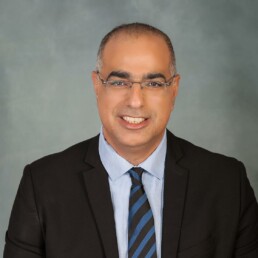
Moshe Cohen-Eliya
Moshe Cohen-Eliya is full professor of constitutional law at and the former President (2015- 2022) of the College of Law and Business (CLB), Israel. He is a council member of the International Society of Public Law (ICON-S), the founder of the Israeli chapter of ICON-S, and the founding editor-in-chief of the law journal Law and Ethics of Human Rights. He is an expert in comparative constitutional law. His publications include “Proportionality and Constitutional Culture ” (CUP, 2013, with Iddo Porat) and articles in the American Journal of Comparative Law, International Journal of Constitutional Law, and University of Toronto Law Journal.
The Moral Machine Experiment
The Moral Machine Experiment
Live: November 10, 2020 - h. 17:00 pm (Italian time)
I describe the Moral Machine, an internet-based serious game exploring the many-dimensional ethical dilemmas faced by autonomous vehicles. The game enabled us to gather 40 million decisions from 3 million people in 200 countries/territories. I report the various preferences estimated from this data, and document interpersonal differences in the strength of these preferences.
I also report cross-cultural ethical variation and uncover major clusters of countries exhibiting substantial differences along key moral preferences. These differences correlate with modern institutions, but also with deep cultural traits. I discuss how these three layers of preferences can help progress toward global, harmonious, and socially acceptable principles for machine ethics. Finally, I describe other follow up work that build on this project.
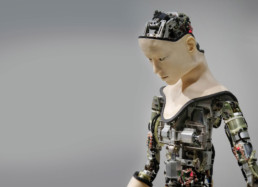
The seminar will be live-streamed on You Tube at "Aula Rostagni UniPadova DFA"
conference speaker

Edmond Awad
Lecturer (Assistant Professor) in the Department of Economics and the Institute for Data Science and Artificial Intelligence at the University of Exeter. He is also an Associate Research Scientist at the Max Planck Institute for Human Development, and is a Founding Editorial Board member of the AI and Ethics Journal, published by Springer. Before joining the University of Exeter, Edmond was a Postdoctoral Associate at MIT Media Lab (2017-2019). In 2016, Edmond led the design and development of Moral Machine, a website that gathers human decisions on moral dilemmas faced by driverless cars. The website has been visited by over 4 million users, who contributed their judgements on 70 million dilemmas. Another website that Edmond co-created, called MyGoodness, collected judgements over 2 million charity dilemmas. Edmond’s work appeared in major academic journals, including Nature, PNAS, and Nature Human Behaviour, and it has been covered in major media outlets including The Associated Press, The New York Times, The Washington Post, Der Spiegel, Le Monde and El Pais. Edmond has a bachelor degree (2007) in Informatics Engineering from Tishreen University (Syria), a master’s degree (2011) in Computing and Information Science and a PhD (2015) in Argumentation and Multi-agent systems from Masdar Institute (now Khalifa University; UAE), and a master’s degree (2017) in Media Arts and Sciences from MIT. Edmond’s research interests are in the areas of AI, Ethics, Computational Social Science and Multi-agent Systems.
The Role of Law, Norms, and Technology in Contact Tracing
The Role of Law, Norms, and Technology
in Contact Tracing
Join us for a roundtable discussion of these topics with Lamberto Ballan (University of Padua), Andrea Pin (University of Padua), Elisa Spiller (University di Padova), Felicia Caponigri (Notre Dame Law School), Kirsten Martin (Notre Dame Mendoza College of Business), Mark McKenna (Notre Dame Law School) and Prof. Giuseppe Sartori (General Psychology Dept., University of Padova).
Live: July 22, 2020 - h. 16:00 pm (Italian time)
Italy’s suffering and courage in the face of the coronavirus pandemic were evident to an American audience earlier this Spring. As time has progressed, the country has passed the curve’s peak and is now reopening and entering a new normal and rhythm of daily life. Part of the daily changes includes the use of a new contact tracing app, “Immuni”, developed by a private company and promoted by the Italian government. The app’s development has been shaped by EU privacy law and Italian law, and the country is currently affronting how to use it effectively. Central to this use are questions of efficacy and privacy, compliance, and even cultural norms. Within the parameters of privacy, fundamental rights, and cultural habits, can Immuni be effective? What role might law, and the technology it shapes, continue to have in our fight against the coronavirus?
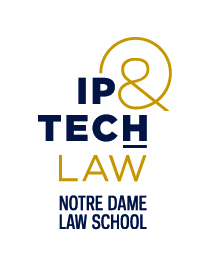
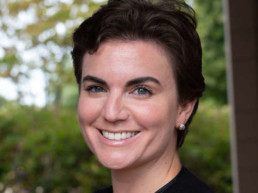
Felicia Caponigri
Program Director, Program on Intellectual Property & Technology Law
Acting Director, International and Graduate Programs
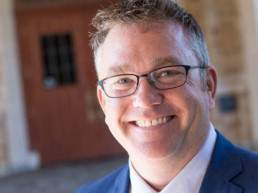
Mark McKenna
John P. Murphy Foundation Professor of Law
Director, Notre Dame Technology Ethics Center
Director, Program on Intellectual Property & Technology Law
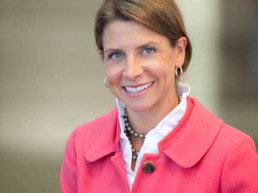
Kirsten Martin
Lindner-Gambal Associate Professor of Business Ethics and chair of the Strategic Management and Public Policy Department at the George Washington University’s School of Business
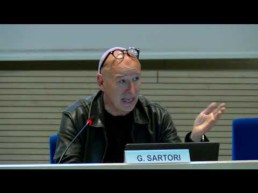
Giuseppe Sartori
Neural basis of intentions and conscious decisions. Memory detection and the Implicit Association Test. Child testimony. Malingering. Natural capacity Parenting. Psychopathy and behavioural genetics. Mental insanity and reduced capacity.

